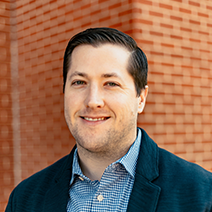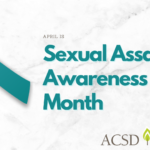There are many important questions to consider regarding diversity, equity, and inclusion (DEI) on our campuses. For example, how do you make sense of DEI? Would you describe your work as supporting such efforts? In what ways do you connect your institution’s mission or strategic plan to such work? Garcia, Walker, Morgan, and Shi (2021) explored questions like these with student development practitioners in an article published in the top tier Journal of College Student Development last year (you can access their article here).
The authors used a critical qualitative approach to examine how student development professionals made sense of espoused commitments to DEI and how they enacted these commitments in practice. The article brings a number of realities to light regarding the field’s engagement with DEI efforts. These realities include how practitioners often:
- erroneously conflate the terms equity and equality;
- feel pressure to employ DEI work but are not given the resources to do so;
- serve as the token marginalized identity in DEI initiatives or hiring committees; or
- are expected to fill the gap between institutional DEI commitments and institutional DEI actions.
For reference, Garcia et al. (2021) describe DEI as concepts often grouped together and used synonymously, yet the notions are actually distinct. They summarize that diversity asks, Who’s in the room?; inclusion asks, Have everyone’s ideas been heard?; and in contrast, equity questions, Who is trying to get in the room but can’t? Whose presence in the room is under constant threat of erasure?
As with any topic that is as prevalent as DEI is today, there is a tendency to assume the topic is important merely because everyone else is talking about it. In considering the questions, outcomes, and realities from Garcia et al. (2021) and studies like it, it is likewise important to reflect on how DEI efforts are underscored and guided by our Christian faith. While DEI is indeed an important part of moving higher education and student development forward, understanding the nuance of why is also important.
Yes, DEI efforts have direct impact on the student experience, and yes, they should be pursued because they more fully promote healthy, safe, and systematically supportive campus processes, spaces, policies, etc. But on a deeper level, and through a Christ-animated approach, there are redeeming qualities that support why we should incorporate such efforts in our practice.
Missing this point can cause us to miss an opportunity to allow Jesus to enliven our pursuit of whole-person development, for all persons. Further, missing this can easily lead us to engage DEI initiatives because we “have to,” or we feel it is the “right thing” to do in our professional role. We should do this hard work because it is the right thing to do; however, a correct posture in the approach helps align our Christian faith with our actions and helps us to more fully participate in the “redemption of learners and learning” (Ream & Glanzer, 2013, p. 53) on our campuses.
Recently, Rebekah Thompson (2021) wrote about how social justice and biblical justice are essentially one and the same (see her article here). In that piece, Thompson highlights one “side” of incorrectly ordered priorities: “There is a fear that people are losing sight of the truth of Jesus while focusing too much on addressing social ills. Too much justice, not enough gospel proclamation.” However, she later weaves in Biblical truths to push against such a thought:
“Micah 6:8 reminds us that Jesus does not require us to simply pursue justice in the world. Jesus also does not require us to simply walk with him, and tell others they should, too. We lose the richness and the depth of the whole picture when we start to ask which is more important instead of asking how we can leverage both together.”
In short, Thompson articulates the idea that social justice and biblical justice are two sides of the same coin. Applying such logic to our student development work in the context of DEI efforts, we are compelled to see such efforts as a redeeming opportunity and a chance to participate in a larger Kingdom mission. That said, engaging DEI efforts (and therefore a piece of biblical justice) is not always easy. Glanzer et al. (2020) note that one of the major tasks faced by Christian student development professionals is how to transform their campus climate to be more hospitable, inclusive, and equitable.
Glanzer et al. (2020) emphasize that we should “dismantle distorted religious understandings and leverage true Christian faith which embraces diversity” (p. 175), and they then go on to offer some applicable suggestions. One way we can practically do this is to move away from having one or two offices shoulder all of the responsibility for DEI initiatives. Sharing this responsibility across our divisions and even across our campuses is the only way we can promote efforts that extend beyond short-lived and superficial strategies. This might include creating interdepartmental committees to inventory existing DEI efforts and explore further opportunities. Other methods Glanzer et al. (2020) offer include: incorporating diversity in an espoused mission, hiring and retaining faculty or staff of color, using theological language when describing diversity (e.g., ‘racial identity stewardship’), celebrating progress, or incorporating practices such as institutional confession (i.e., oppression resulting from institutional policies is acknowledged so healing and altered behavior might commence).
When understood within a Kingdom mission, DEI embodies important practices such as those mentioned above. By advocating for and contributing to these efforts, we as Christian student development practitioners can create a place of participation and belonging for all students on our campus.
But, in addition to these practical applications, thinking theologically provides us with distinctive resources that are not offered by Garcia et al.’s (2021) research. For example, considering the Imago dei, we are called to see and work alongside all of our students as image bearers in Christ. Although Garcia et al. (2021) note that “critical to transforming institutional cultures is the ability for SA professionals to recognize and enact equity-centered practice,” retooling our organizational cultures from a Christian perspective means approaching such equity-centered practice in light of a shared identity in Jesus.
Further, Garcia et al. (2020) emphasize that “regardless of how mission statements are framed, the need for attention to equity, diversity, and inclusion within higher education institutions is underscored by research that has shown hostile climates for diversity have ramifications on the well-being and academic progress of minoritized student populations” (p. 138). Seeing such hostility representing the fallenness present in the Biblical metanarrative (creation, fall, redemption, restoration), we should be compelled to enact redemptive practices, like the ones offered from Glanzer et al. (2020).
Though university leaders often desire to capitalize on and strive to cultivate more diverse, inclusive, and equitable environments, they also often overlook opportunities to enact practices that will contribute to institutional transformation (Garcia et al., 2021). To avoid this oversight, and to fully pursue biblical justice, we need to situate the work we do to help students belong within a greater Kingdom mission. In turn, we are participating in the redemption of the educational process.
Questions to Ponder in Your Next Staff Meeting
In their study, Garcia et al. (2021) mentioned that “all participants noted it was rare that explicit discussions came up around equity, diversity, and inclusion during program, department, or division meetings” (p. 143). Given this common reality, we encourage you to weave the following questions into your next staff meeting.
- How do you (individually) make sense of DEI?
- How can or should your Christian faith surround your understanding?
- How can you connect your institutional mission to your DEI-related thinking?
- What about your departmental mission? Program mission?
- Though our beliefs and theological perspectives are important, Garcia et al. (2021) state that, “Simply holding beliefs around social justice and equity cannot bring about systemic change” (p. 139).
- What practical steps can you engage with from the lists above to move from beliefs to action in pursuit of our shared Kingdom efforts?
References
Garcia, C.E., Walker, W., Morgan, D., & Shi, Y. (2021). Aligning student affairs practice with espoused commitments to equity, diversity, and inclusion. Journal of College Student Development 62(2), 137-153. doi:10.1353/csd.2021.0013.
Glanzer, P., Cockle, T. F., Jeong, E. G., & Graber, B. N. (2020).Christ-enlivened student affairs: A guide to Christian thinking and practice in the field. ACU Press.
Ream, T. C., & Glanzer, P. L. (2013). The idea of a Christian college: A reexamination for today’s university. Cascade Books.
Thompson, R. (2021, October). Social justice and biblical justice are actually one and the same: Pitting justice against the gospel is giving the church a false choice. Christianity Today. Retrieve from https://www.christianitytoday.com/better-samaritan/2021/october/social-justice-and-biblical-justice-are-actually-one-and-sa.html?fbclid=IwAR13U28wpvPEeg4uP40TnowRlnBDXQ3MltC6o0GjnYamx02V-NbqO_7VED4







